Hales, Wheeler Split on Novick’s Gas Tax Proposal





 Email to a friend
Permalink
Email to a friend
Permalink
Tuesday, September 15, 2015
Brendan Murray, GoLocalPDX Contributor
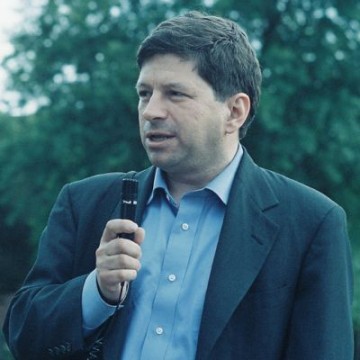
City Commissioner Steve Novick
In light of the crumbling state of Portland's roads and streets,
City Commissioner Steve Novick is considering proposing a gas tax to pay for road repair as a ballot measure in an upcoming election. The idea has received mixed reactions from the two candidates vying to be Mayor of Portland.
Novick told GoLocal that the gas tax has significant advantages over other funding sources that have been suggested, such as an income tax.
“First of all, the gas tax already exists, so this has no administrative costs, there would be no need to pay to establish a new revenue stream,” he said. “In the big picture, this discourages people from driving and using fossil fuels, which is something we're trying to accomplish.”
Ted Wheeler, Oregon State Treasurer and a Democratic Candidate for Mayor, told GoLocal in a statement that he was in favor of the gas tax and believes it can help fund the street fees.
"Reversing the years of neglected maintenance to our streets will depend on the public's confidence that we are spending their money wisely,” he said. “I am glad that Commissioner Novick is looking to take a proposal to the voters, something the Mayor should have advocated for from the beginning. A gas tax should be on high on the list for consideration."
Dana Haynes, Mayor Charlie Hales' Communications Director, told GoLocal that while the Mayor is glad to see a strong debate surrounding the issue, Hales is “not prepared to support a gas tax.”
Haynes said that the Mayor's office did not support the tax in large part because it is regressive. He also said that the Mayor's office did not believe that such a measure was viable.
“If the tax is low enough to be popular, it doesn't raise enough money,” Haynes said. “If it raises enough money to have an impact, it typically is very unpopular.”
How it Would Work?
Novick said that he is currently considering a 10 cent per gallon tax, similar to the one passed in Bend City earlier this year. He said that over five years the tax as described above would result in an extra $58 million for the city.
He also said that despite the increase in gas prices that would come with the tax, he did not anticipate Portlanders fleeing the city's gas stations for cheaper pastures.
“There would be some people that would do that, but for only 10 cents, I don't think we would see too many people driving away from the city to get gas,” he said. “We already see price variance like this in different gas stations around the city.”
Novick acknowledged that the gas tax alone would “only cover a fraction” of all the street repairs needed in the city.
“The City of Portland has known for 30 years that it has a problem with this,” Novick said, “but they haven't done anything to raise revenues. Even if this only solves a fraction of the problem, something is certainly better than nothing.”
Early Support
Novick has already received support for his potential gas tax from the
Portland Business Alliance and the
City Club of Portland, both of which gave at least partial endorsements of taxing gasoline purchases.
In a letter to Novick, PBA President and CEO Sandra McDonough said that there is a “need for additional revenues to address the maintenance backlog on the city's road network,” and that the PBA would support a gas tax as part of a multi-faceted plan that includes prioritizing maintenance and the additional use of existing resources to repair the city's ailing streets.
The City Club of Portland also backed a gas tax. The group published a report last week entitled “Portland's Streets” which outlines the scope of the street repair problem and the best strategies in which to deal with it.
Like the PBA, the City Club suggested reallocating already existing funds to help fund street repairs immediately. The Club's report also advocated for a new funding source.
“The city should immediately pursue a fee for use,” the report's “recommendations” section reads. “At the moment, the most technically feasible fee is a city gas tax. A gas tax would generate revenue from most users – including those transporting goods across Portland streets and those who don’t reside in Portland, and would discourage congestion and pollution.”
Would it Pass?
Novick said that he believes there is a good chance a gas tax would pass via a ballot measure. He said that there have already been volunteers, including some from the City Club, who would be willing to run a campaign supporting the gas tax.
“We still need to do some outreach to see how this would do,” he said. “Early polling has suggested, however, that this is a viable option to voters.”
Related Slideshow: Ways To Fund Street Repairs Without A Street Fee

Prev
Next
Portland Gas Tax
Currently, there is a $.03 Multnomah County gas tax. The tax revenue is split about 20 percent to Multnomah County and 80 percent to the city. Every $.01 increase in the tax would next about $1.36 million to the city, according to PBOT’s budget. Given that, the City of Portland has the power to levy its own gas tax.
The Politics: Hugely unpopular for not a lot of cash, but perhaps less unpopular than an income tax.
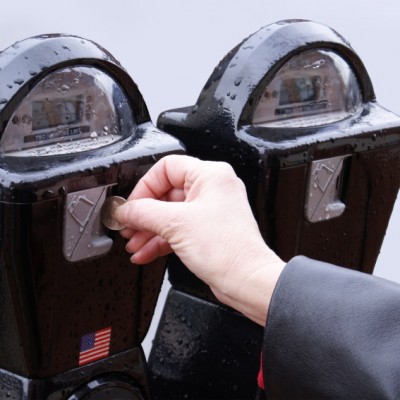
Prev
Next
Dynamic Pricing
Seattle and San Francisco use “dynamic pricing” on their parking meters. That means that the price to park goes up depending on the time of day and the location of the meter. For instance, if you are parking right in front of the Schnitz at 7 p.m. on a Saturday night, it’s going to cost you more than a $1.60 an hour.
Portland’s current meters could be programed for dynamic pricing, according to experts, and with 9,000 meters in the city, that could add up.
The Politics: Despite some grumbling, the city doesn’t need anyone’s permission to raising parking meter fees. Parking revenue is completely unrestricted, meaning it can be spent anywhere and on anything.
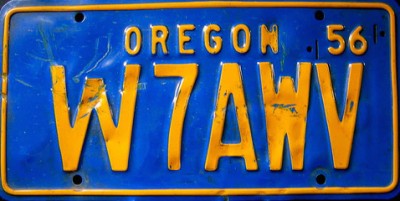
Prev
Next
License Registration
With 692,201 registered vehicles in the county in 2013 a $20 vehicle license registration fee, with a 20/80 split to the county (like with the current gas tax), could generate $11 million for the city every two years.
The Politics: This would have to go through the Multnomah County Board. The county doesn’t really need cash for infrastructure at the moment, as it has a few big federal grants lined up to pay for upcoming bridge repairs. The challenge would be offering the commissioners a deal sweet enough for them to take the political hit.
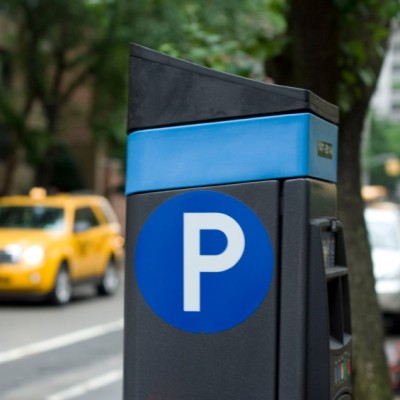
Prev
Next
More Parking Meters
A parking meter costs about $1 an hour to operate. So at $1.60 and hour, about $.60 is pure profit. More meters are already in the works for Northwest Portland. Meters in all major shopping districts from Southeast Hawthorne, Division and Belmont Streets to Northeast Alberta Street to North Mississippi and Williams Avenue could raise money for improvements in those areas.
The Politics: Neighbors and businesses would whinge endlessly. But many studies say that parking meters benefit businesses by keeping spaces turning over. Residents could be issued parking stickers to exempt them from charges.
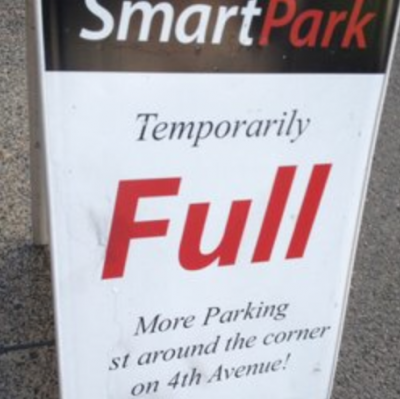
Prev
Next
Raise Smart Park Fees
The city controls 3,800 spaces in six downtown garages. Smart Park cost about $11 million a year to run, according to PBOT’s budget. All told parking charges from meters and Smart Park brings in $45 million a year but the system is not operated to maximize revenue. Dynamic pricing might be hard to implement at the garages but the city could raise the rates.
The Politics: Downtown business interests might complain that raising parking rates would stop people from shopping and visiting downtown. The public interest would have to decide if that’s a risk to take, given the alternatives are an income tax or tattered roads.
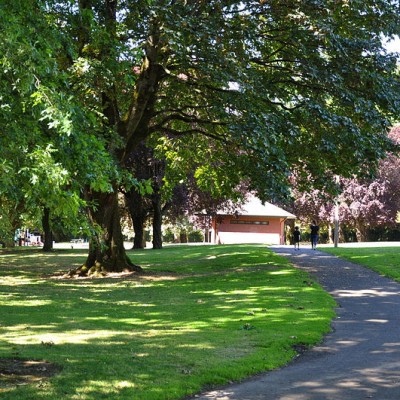
Prev
Next
Shift SDCs from Parks
System Development Charges are fees that different city bureaus level against new construction projects in Portland. Parks, PBOT, the water and environmental services bureaus can all level SDCs at developers.
The rationale is, if new development puts a strain on city infrastructure, like roads and sewer lines, then it should pay extra to upgrade the systems. However, most SDCs get charged to developments in the city’s center, while the revenue goes to pay for projects all over Portland.
Over the last four years, Parks & Rec has averaged about $9 million a year in SDC revenue. The city could pull the bureau’s power to charge and let PBOT charge more.
The Politics: It would be a fight with parks supporters. Parks has said it needs $49 million a year just for new parks acquisitions. But it might be more logical to raise that money through bonds, or repurposing taxpayer-owned golf courses, especially ones in park-starved parts of town.
Photo: Berkeley Park in SE Portland, via Wikimedia Commons
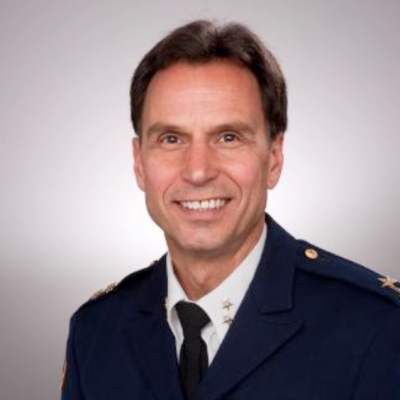
Prev
Next
Raise Retirement
Raise police and fire reitrement.
Police Chief Mike Reese announced his retirement this year at the ripe old age of 55. But he qualified for retirement much earlier, at age 50. Putting five years on the clock would certainly save the taxpayers some cash that could be used on roads or anything else.
The Politics: You’d have to face the union and that wouldn’t be pretty.
Photo: Former Portland Police Chief Mike Reese

Prev
Next
Reform Retirement
Portland’s Police and Fire Retirement Fund was set up by voters in 1948 and has resulted in a huge hole the public must now dig itself out of. Despite voter-approved reforms in 2006 and 2012, the obligation is still a fiscal time bomb. As of June 30, 2012, unfunded liability in the fund was in the neighborhood of $2.9 billion.
The Politics: Public employee pension obligations are the stuff of municipal bankruptcy court. It’s a hard fight, but reforms were suggested by Portland’s City Auditor’s Office as recently as Jan. 2013.
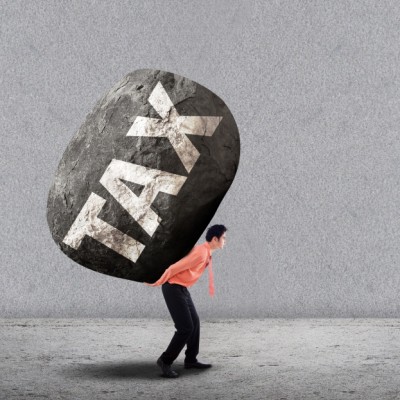
Prev
Next
Fix Tax Compression
In 1996, Measure 50 cut and capped property taxes across the state. It froze the assessed value of homes at their 1995 level and limited growth in value to three percent a year.
In Portland, the result is a system in which homes that have increased in value rapidly pay very little taxes and homes that haven’t increased in value much can pay sky-high taxes. The short hand for the squeeze in tax equity is “tax compression.”
The city loses about $24 million a year due to tax compression, according to the city auditor. If the city, county or state could figure out a way to fix the issue there could more money for everyone: They’ve had 20 years to think about it.
The Politics: There has been endless talk about tax reform in Oregon. The Governor put it as a major priority of his fourth term. All the old tax-revolt warriors have long since left the scene, but the political will to do much more than talk will be hard to find.

Prev
Next
Stop Urban Renewal
About $.25 of every $1 that the city gets in property tax revenue goes to pay down debt on urban renewal projects. Mayor Charlie Hales has talked about sunsetting urban renewal districts.
On the immediate horizon, the Eastside Industrial URA has the power to issue new debt up until 2018. One step forward would be to stop that right now.
The Politics: Urban renewal is a cash cow for commissioners and their pet projects. No one really wants the system to change. But if it’s a choice between taking a hit on pet projects or a city tax revolt, commissioners might support clipping their own wings a bit.

Prev
Next
Put PBOT Out to Bid
Private companies can pave roads and clean them too can’t they? What if they could do it for less money than the city? PBOT could put services like street repair and cleaning out to bid.
It might not save a lot of cash, but it might win trust with the voters by showing them that the city was trying to get the best price for the public’s money.
The Politics: “Privatize” is dirty word in liberal Portland. But then, "income tax" might prove to be even worse.
Related Articles
Enjoy this post? Share it with others.





 Email to a friend
Permalink
Email to a friend
Permalink




























Follow us on Pinterest Google + Facebook Twitter See It Read It